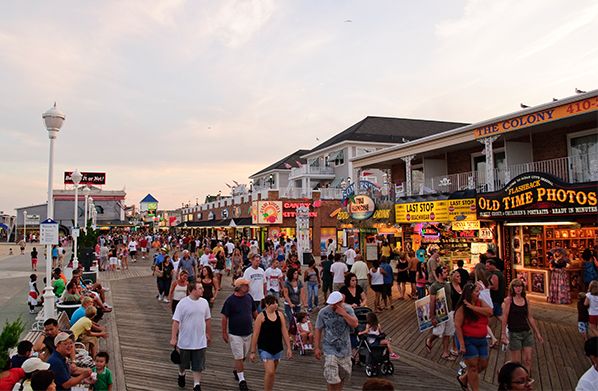Arcades are a staple of Maryland’s beach boardwalks. They’ve managed to survive the invention of home video games systems like Nintendo and Xbox. They’re even able to compete with iPhone and iPad usage among beachgoers.
Their next competition won’t be a gaming system or gadget but reams of new paperwork and additional fees they face if Maryland passes proposed gaming rules. These businesses argue that added fees will make it impossible to turn a profit on their popular summertime games.
The new rules would require that most arcade games be registered and games with prizes valued at more than $30 be approved by the lottery commission and be assessed a $50 licensing fee. Manufacturers and distributors will also get slapped with fees. Furthermore, the games must be tested and their locations mapped out in quarterly reports.
Restaurants, bars, and sports clubs will also be affected. However, arcade owners are the most vocal as they see this as an attempt to get them lumped together with other gaming and gambling enterprises. For those who have altered their games to avoid the new rules, they’ve found their results “disastrous.”
The Washington Post reports:
“I am not going to be regulated out of business,” said Jerry Greenspan, the second-generation owner of Sportland and Fun City, two of the Ocean City boardwalk’s biggest arcades. “My dad worked too hard.”
…
Operators said they already pay thousands of dollars in fees to local governments, including amusement taxes that can be as high as 10 percent. And they called the extra paperwork impractical. Machines, they said, can be moved frequently because of the seasonal nature of their business.
“Just the time requirements alone for operator and machine registration and move reporting are beyond the scope of any small operator,” said Larry Bershtein, owner of Capitol Amusement in Laurel and president of the Maryland Amusement and Music Operators Association.
Greenspan said he tested the new rules and came to the same conclusion. For three weeks, he replaced the prizes in three machines so they met the new requirements. Out went the iPad Minis that would trigger fees and paperwork, and in went less expensive snap-back hats.
“It was a disaster,” he told lottery officials at the June hearing. Instead of bringing in $400 a week, each game brought in closer to $50.
What’s driving these new fees and reporting? That’s a good question. There don’t seem to be any health or safety motivations for the gaming commission. They are cataloguing machines and assessing fees, so perhaps this is about revenue and expanding their regulatory reach over arcade games.
Unfortunately for these business owners they are experiencing the burdens that added regulations hoist on the shoulders of (small) business. If the fees become prohibitive they may be forced to switch to other options (which could prove more lucrative) or at worst go out of business.
Some government action is well-intentioned, but poorly conceived or executed and cause unintended consequences. The intention, the conception and the execution all strike me as poor and burdensome here. For businesses that have to compete with so many other distractions, it erodes their competitive advantage of creating a fun atmosphere where everybody wins. It's no game that after these regulations are in place they will lose.


